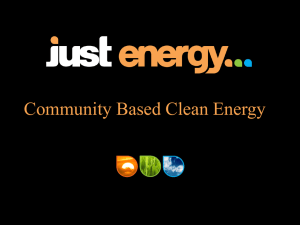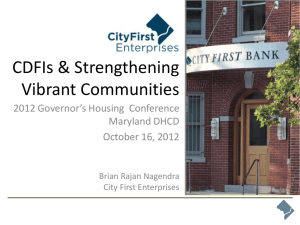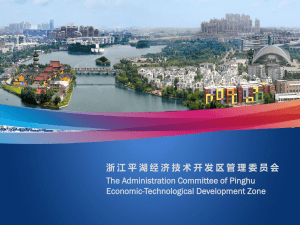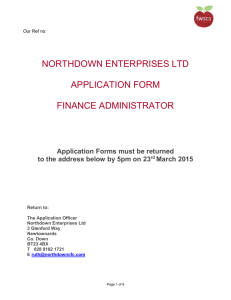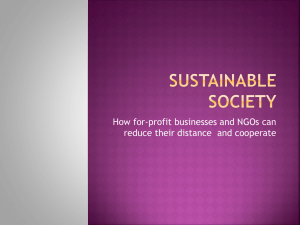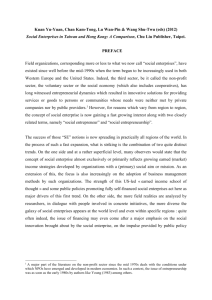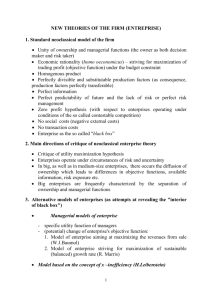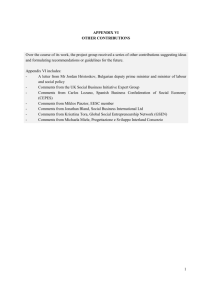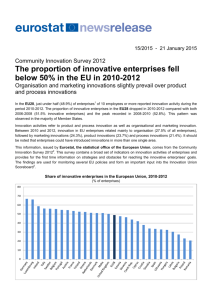SEFORIS - job description
advertisement
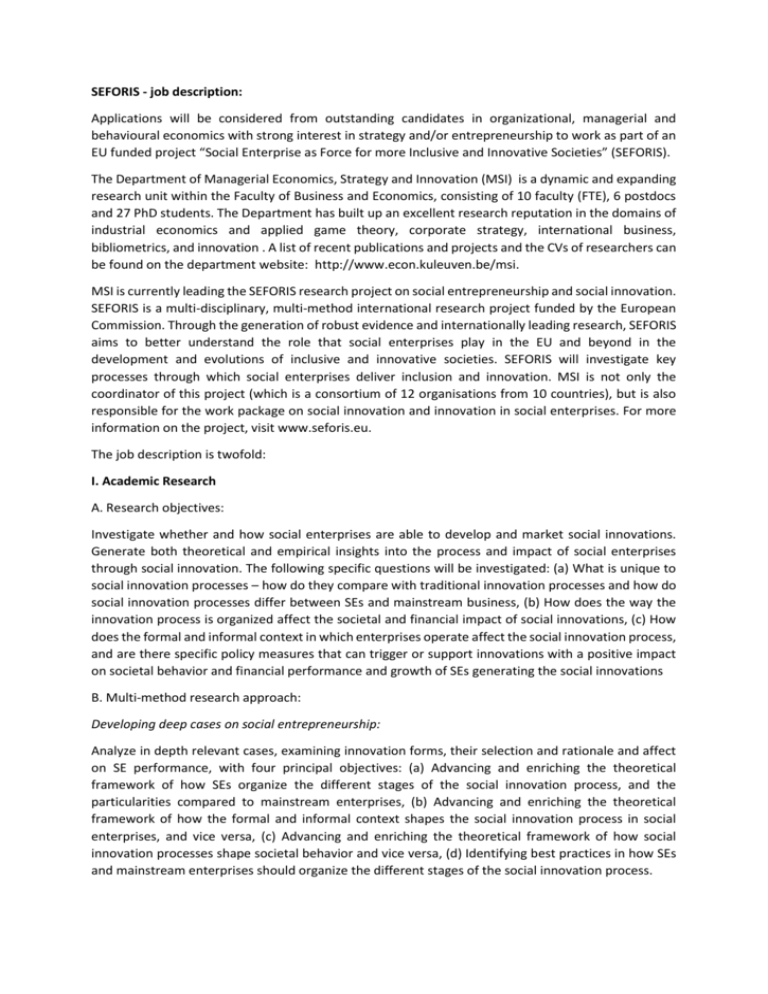
SEFORIS - job description: Applications will be considered from outstanding candidates in organizational, managerial and behavioural economics with strong interest in strategy and/or entrepreneurship to work as part of an EU funded project “Social Enterprise as Force for more Inclusive and Innovative Societies” (SEFORIS). The Department of Managerial Economics, Strategy and Innovation (MSI) is a dynamic and expanding research unit within the Faculty of Business and Economics, consisting of 10 faculty (FTE), 6 postdocs and 27 PhD students. The Department has built up an excellent research reputation in the domains of industrial economics and applied game theory, corporate strategy, international business, bibliometrics, and innovation . A list of recent publications and projects and the CVs of researchers can be found on the department website: http://www.econ.kuleuven.be/msi. MSI is currently leading the SEFORIS research project on social entrepreneurship and social innovation. SEFORIS is a multi-disciplinary, multi-method international research project funded by the European Commission. Through the generation of robust evidence and internationally leading research, SEFORIS aims to better understand the role that social enterprises play in the EU and beyond in the development and evolutions of inclusive and innovative societies. SEFORIS will investigate key processes through which social enterprises deliver inclusion and innovation. MSI is not only the coordinator of this project (which is a consortium of 12 organisations from 10 countries), but is also responsible for the work package on social innovation and innovation in social enterprises. For more information on the project, visit www.seforis.eu. The job description is twofold: I. Academic Research A. Research objectives: Investigate whether and how social enterprises are able to develop and market social innovations. Generate both theoretical and empirical insights into the process and impact of social enterprises through social innovation. The following specific questions will be investigated: (a) What is unique to social innovation processes – how do they compare with traditional innovation processes and how do social innovation processes differ between SEs and mainstream business, (b) How does the way the innovation process is organized affect the societal and financial impact of social innovations, (c) How does the formal and informal context in which enterprises operate affect the social innovation process, and are there specific policy measures that can trigger or support innovations with a positive impact on societal behavior and financial performance and growth of SEs generating the social innovations B. Multi-method research approach: Developing deep cases on social entrepreneurship: Analyze in depth relevant cases, examining innovation forms, their selection and rationale and affect on SE performance, with four principal objectives: (a) Advancing and enriching the theoretical framework of how SEs organize the different stages of the social innovation process, and the particularities compared to mainstream enterprises, (b) Advancing and enriching the theoretical framework of how the formal and informal context shapes the social innovation process in social enterprises, and vice versa, (c) Advancing and enriching the theoretical framework of how social innovation processes shape societal behavior and vice versa, (d) Identifying best practices in how SEs and mainstream enterprises should organize the different stages of the social innovation process. In order to do so, you will conduct in-depth analysis of 4 case studies, and in addition contrast these to case studies of two to four ‘traditional’ private sector enterprises selected to each match a social enterprise as closely as possible in terms of sector and setting, in order to facilitate comparisons. Documentation of the four cases will need to be triangulated by using both interviews and archival documents, including press articles, books, websites, etc. Analysing data on social entrepreneurship in 9 countries in Europe and beyond: In this step you focus on the analysis of social innovation modes and models and related data from large-scale surveys of SE with two principal objectives: (a) Mapping innovation modes and models in participating countries (including a cross-coutrny analysis), and (b) Identification of emerging trends and needs. II. Project Management: A. Project Management tools for development & deliverables generation From day one the task of the coordinator is to develop solid project management tools specifically for this project. These tools will support the project manager with the timely materials generation for project control. The project coordinator has previous experience in managing the FP7 projects and hence will take advantage of the already existing tools. These tools and mechanisms will ensure the efficient and effective running of the project are: • • • Administrative Control Partnership agreement Work Planning and Control and Quality Assurance / Quality Control The following activities are involved: • • • • Control of work progress Refinement and updating of work-plan if necessary Support with the procurement Production of progress reports for the European Commission, and other reports if required. B. Project Co-ordination and liaison with the EC: From the very beginning the project coordinator will be responsible for the development and finalisation of the Partnership Agreement with all the project partners and development of the inception phase plan to be agreed with the project partners and the European Commission. The lead partner will maintain relationships with the other partners on a regular basis and will be in charge of liaison with the European Commission. The project co-ordinator will also maintain the continuous integration of the information sources.



